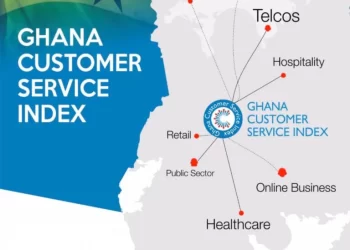Parliament has unanimously approved a $2.8 billion debt restructuring agreement with 25 official creditor countries, including global powers such as China, the United States, France, Germany, and the United Kingdom.
The move allows Ghana to postpone external debt repayments for over 15 years and unlocks continued support under a three-year, $3 billion bailout programme from the International Monetary Fund (IMF).
The parliamentary approval, which came late Tuesday, June 24, 2025, marks a key step in Ghana’s efforts to emerge from its most severe economic crisis in decades.
The crisis has been marked by unsustainable public debt levels, surging inflation, and the worsening impact of illegal mining on the environment and economy.
Terms of agreement under the g20 framework
The debt restructuring deal falls under the G20 Common Framework, which aims to coordinate debt treatment for low-income countries.
Ghana signed a memorandum of understanding with its official creditors in January 2025 after defaulting on most of its external debt in December 2022.
According to a parliamentary, the arrangement reschedules payments due between December 20, 2022, and December 31, 2026.
These obligations will be capitalised and repaid over five years from 2039 to 2043—effectively granting Ghana more than a decade’s breathing space to restore economic stability.
During the IMF-supported programme period (2023–2026), Ghana is expected to receive $2.8 billion in debt service relief.
Interest rates on the restructured loans will range from 1% to 3%, depending on the original terms, providing Ghana with below-market borrowing costs during the deferral period.
Bipartisan support for economic recovery
“The Committee noted that the debt restructuring was critical in supporting the government to restore and sustain macroeconomic stability and debt sustainability,” the parliamentary report said.
The deal received full bipartisan support, underscoring the urgency of stabilising the country’s economy and restoring investor confidence.
The approval is expected to secure continued disbursements under the IMF’s $3 billion bailout, which was first approved in May 2023.
That programme has already yielded tangible benefits, including a sovereign credit rating upgrade from Fitch Ratings.
Private creditor talks face headwinds
Despite this major breakthrough with bilateral creditors, negotiations with private lenders are lagging. Discussions with the pan-African trade lender Afreximbank have stalled amid disagreements over creditor hierarchy.
While Ghana’s finance ministry insists that all lenders be treated equally under the Common Framework, Afreximbank contends that its multilateral status should give it priority in repayment. The standoff is causing delays in concluding a comprehensive debt restructuring package.
A recent research note from U.S. investment bank JP Morgan observed that “the chances of Afreximbank getting involved in a debt restructuring have increased,” suggesting growing international pressure for a negotiated solution with commercial creditors.
The approval of the $2.8 billion debt deal marks a significant milestone in Ghana’s path to economic recovery.
With official creditor support secured, attention now shifts to securing agreement with private bondholders and financial institutions.
The government’s ability to balance transparency, equity, and urgency in those negotiations will determine how quickly Ghana can move from crisis to stability.












